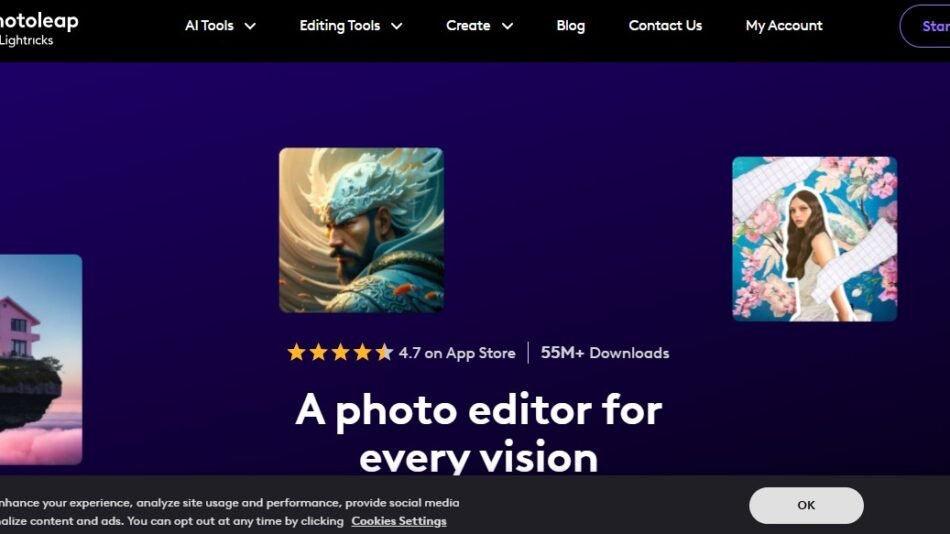Tiptap.dev is a highly customizable, headless rich text editor framework built on top of ProseMirror. Designed for developers who need full control over text editing experiences, Tiptap is ideal for modern web applications where flexibility, extensibility, and performance are critical.
Unlike traditional WYSIWYG editors, Tiptap separates the logic from the UI, allowing developers to define exactly how their editor looks and behaves. This headless architecture means Tiptap can be fully customized to fit your frontend framework—whether you’re using React, Vue, Svelte, or plain JavaScript.
Tiptap is trusted by product teams and developers building content-heavy apps, collaborative platforms, CMSs, and note-taking tools. With deep extensibility and first-class TypeScript support, Tiptap offers a developer-first approach to rich text editing.
Features
Tiptap offers a robust set of features that make it one of the most flexible rich text editors available today:
Headless Architecture: No fixed UI—build your own interface while using Tiptap’s logic and structure.
Framework Agnostic: Supports integration with popular JavaScript frameworks like React, Vue, Svelte, and more.
TypeScript Support: Built with TypeScript, ensuring excellent developer tooling, autocompletion, and type safety.
Custom Extensions: Easily add or create custom extensions for tables, mentions, tasks, embeds, and collaborative features.
Collaboration Engine: Real-time collaborative editing powered by Y.js for multi-user editing environments.
Markdown and HTML Parsing: Convert between formats effortlessly with built-in parsing and serialization.
ProseMirror Core: Built on top of ProseMirror, providing a solid foundation for advanced editing behavior.
Accessibility Ready: Designed with a focus on a11y, ensuring inclusive user experiences.
Cloud Integration (Optional): Tiptap offers a cloud platform for teams that need real-time collaboration, authentication, and hosted persistence.
These features give developers the power to design fully tailored, production-ready text editing experiences.
How It Works
Tiptap.dev provides a modular and extensible architecture that makes it easy to integrate into any frontend environment:
Install the Package: Use npm or yarn to install
@tiptap/corealong with framework-specific packages (e.g.,@tiptap/reactor@tiptap/vue-3).Set Up the Editor: Create a Tiptap editor instance with your chosen configuration, including content, extensions, and editable state.
Define Your UI: Build your own toolbar, buttons, and interface to control formatting and commands. Tiptap doesn’t enforce a default UI.
Add Extensions: Choose from community-built or official extensions, or create your own to introduce new features or integrations.
Integrate with Backend: Use Tiptap’s output formats (HTML, JSON, or Markdown) to store content in your database or send it to an API.
Enable Collaboration (Optional): For real-time editing, connect to Tiptap’s Cloud or use Y.js directly.
Tiptap gives developers full creative and technical control while maintaining the core benefits of structured text editing.
Use Cases
Tiptap.dev is ideal for a wide variety of use cases where rich text editing is central to the product experience:
Content Management Systems (CMS): Power editorial workflows with advanced formatting, embeds, and markdown support.
Note-Taking Apps: Build apps similar to Notion or Roam with real-time collaboration and task lists.
Knowledge Bases and Wikis: Allow users to format, reference, and update documentation interactively.
Blogging Platforms: Provide structured content creation for blog authors with custom themes and media embedding.
Collaborative Editing Tools: Enable multiple users to work on the same document with conflict resolution and syncing.
In-App Messaging or Comments: Enhance user engagement with formatting tools and mentions in chat or discussion interfaces.
Tiptap is ideal for startups and enterprises alike building robust content creation experiences.
Pricing
Tiptap offers both open-source tools and a premium cloud offering:
Open Source (Free):
Fully functional core editor and extensions
Community support via GitHub
Self-hosted collaboration features with Y.js
Tiptap Cloud (Paid):
Hosted collaboration infrastructure
Real-time syncing and multi-user editing
Authentication and user management
Scalable API for document persistence
Priority support and commercial licensing
Pricing for Tiptap Cloud is available upon request or signup, and is designed to scale with usage and team size. Developers can prototype and build full apps using the free editor, and upgrade to Cloud when collaborative or hosted features are required.
Strengths
Tiptap stands out from other editors due to several key strengths:
Developer-Centric Design: Offers full control with minimal constraints on UI or functionality.
Modern Architecture: Headless and framework-agnostic, perfect for SPAs and modern frontend stacks.
Extensibility: Easily build and integrate extensions tailored to your app’s needs.
Production-Ready: Used by startups and large teams in high-performance applications.
First-Class TypeScript Support: Great tooling, autocomplete, and maintainability.
Vibrant Ecosystem: Strong community, active development, and growing library of extensions.
These strengths make Tiptap one of the most advanced and flexible rich text editors available today.
Drawbacks
While Tiptap is powerful, it may not suit every use case out of the box:
Learning Curve for New Developers: Requires knowledge of ProseMirror and rich text models for deeper customization.
No Default UI: Headless nature means developers must build their own interface, which may be time-consuming.
Advanced Features May Require Cloud: Real-time collaboration and persistence are easier with Tiptap Cloud, which is a paid offering.
Framework Setup Required: Developers must integrate it with their frontend stack, unlike plug-and-play editors.
These are expected trade-offs for a high-performance, customizable developer tool.
Comparison with Other Tools
Here’s how Tiptap.dev compares with other popular rich text editors:
Versus Quill.js: Quill is easier to set up but offers less control and extensibility. Tiptap is better suited for custom UIs and advanced features.
Versus TinyMCE: TinyMCE is a full-featured WYSIWYG editor with a traditional UI. Tiptap is headless and more modern but requires more development effort.
Versus Slate.js: Slate is flexible but lower-level. Tiptap provides more structure out of the box with easier extension management.
Versus ProseMirror: Tiptap is built on ProseMirror and simplifies its complexity, making it more accessible to developers.
Tiptap is ideal for those seeking flexibility, control, and a modern, modular editing experience.
Customer Reviews and Testimonials
Tiptap is widely used and respected in the developer community. While not all testimonials are publicly listed on the homepage, reviews from GitHub, Reddit, and dev forums note:
“Tiptap gave us full control over our editor without the pain of building everything from scratch.”
“Absolutely love the extension system. It feels like building with Lego blocks.”
“We switched from Slate to Tiptap for our app, and haven’t looked back since.”
Tiptap is known for its reliability, developer experience, and adaptability across industries.
Conclusion
Tiptap.dev is a modern, open-source rich text editor built with developers in mind. By offering a headless architecture, deep customization, and a growing ecosystem of extensions, Tiptap makes it possible to build fully tailored text editing experiences for any application.
Whether you’re building a knowledge base, collaborative writing tool, or CMS, Tiptap delivers the performance, flexibility, and developer experience needed to bring your vision to life.















